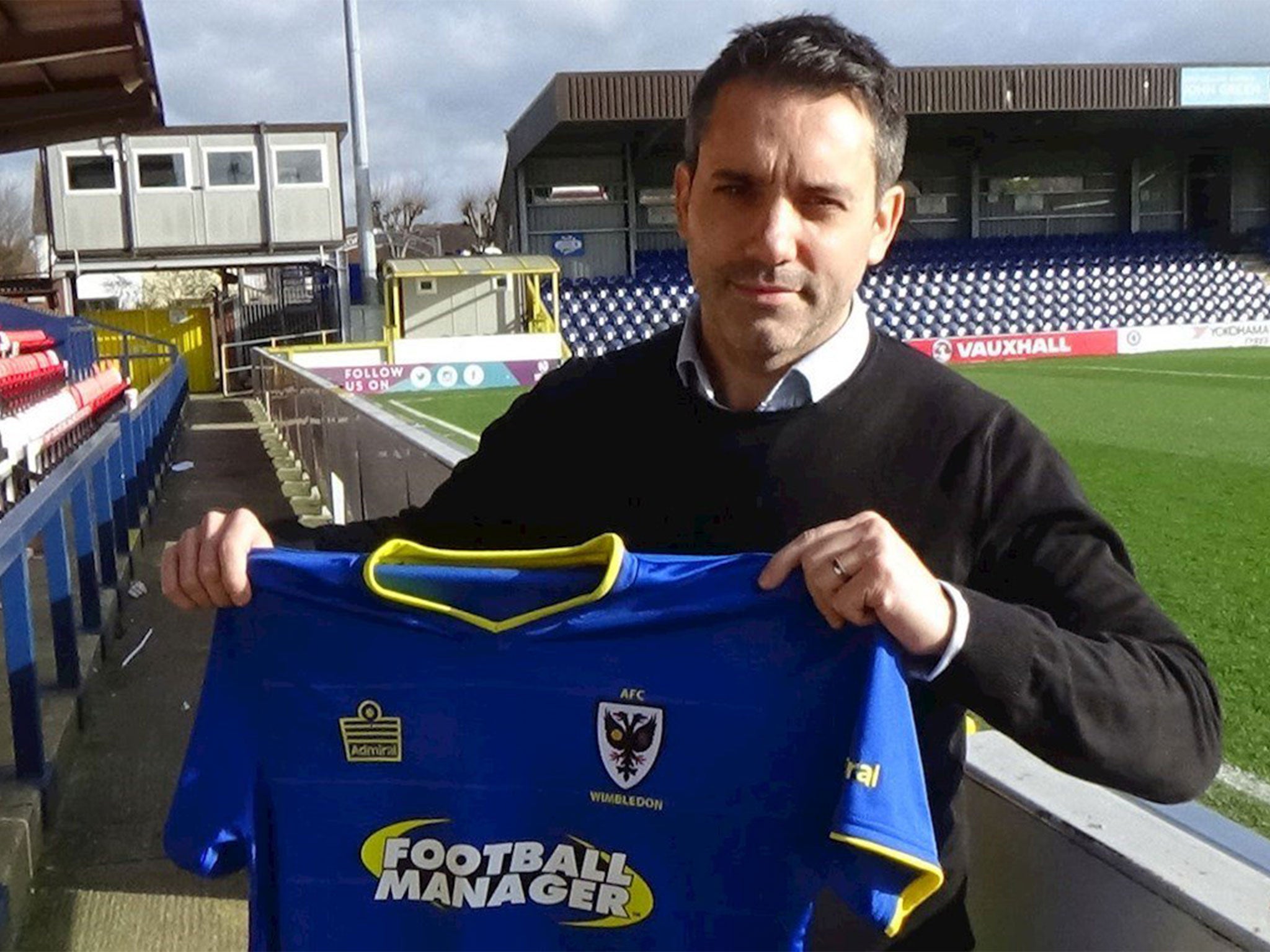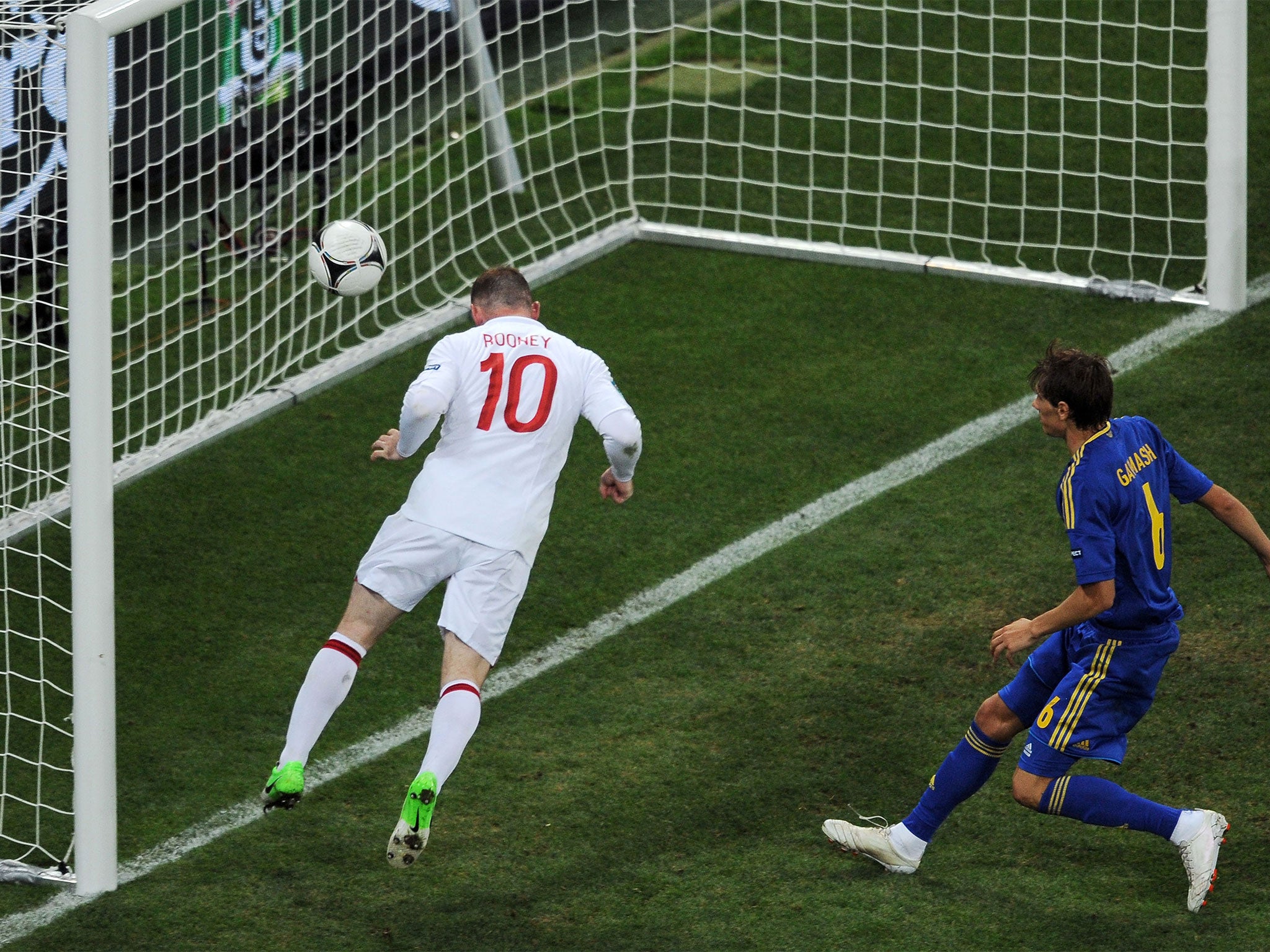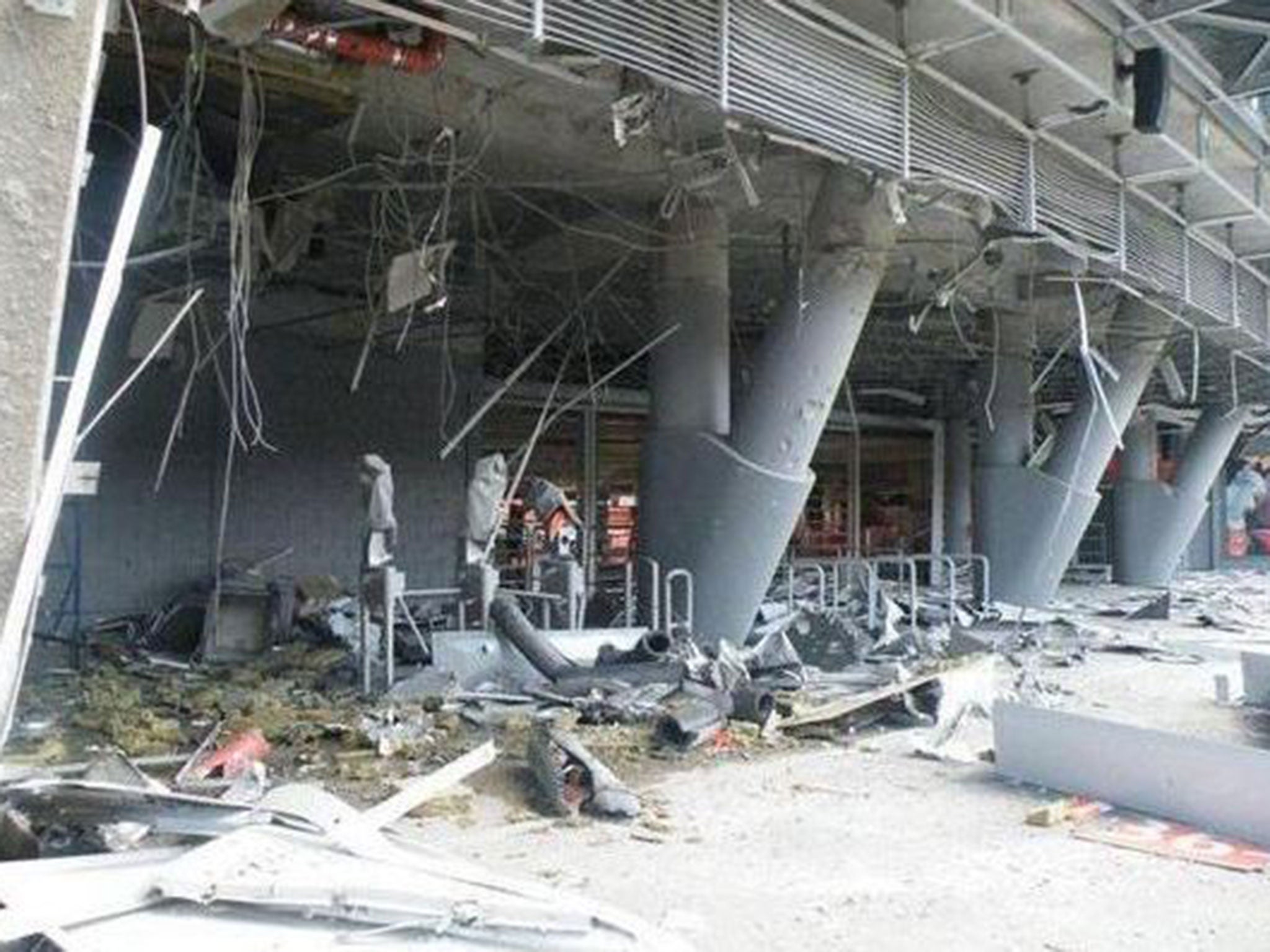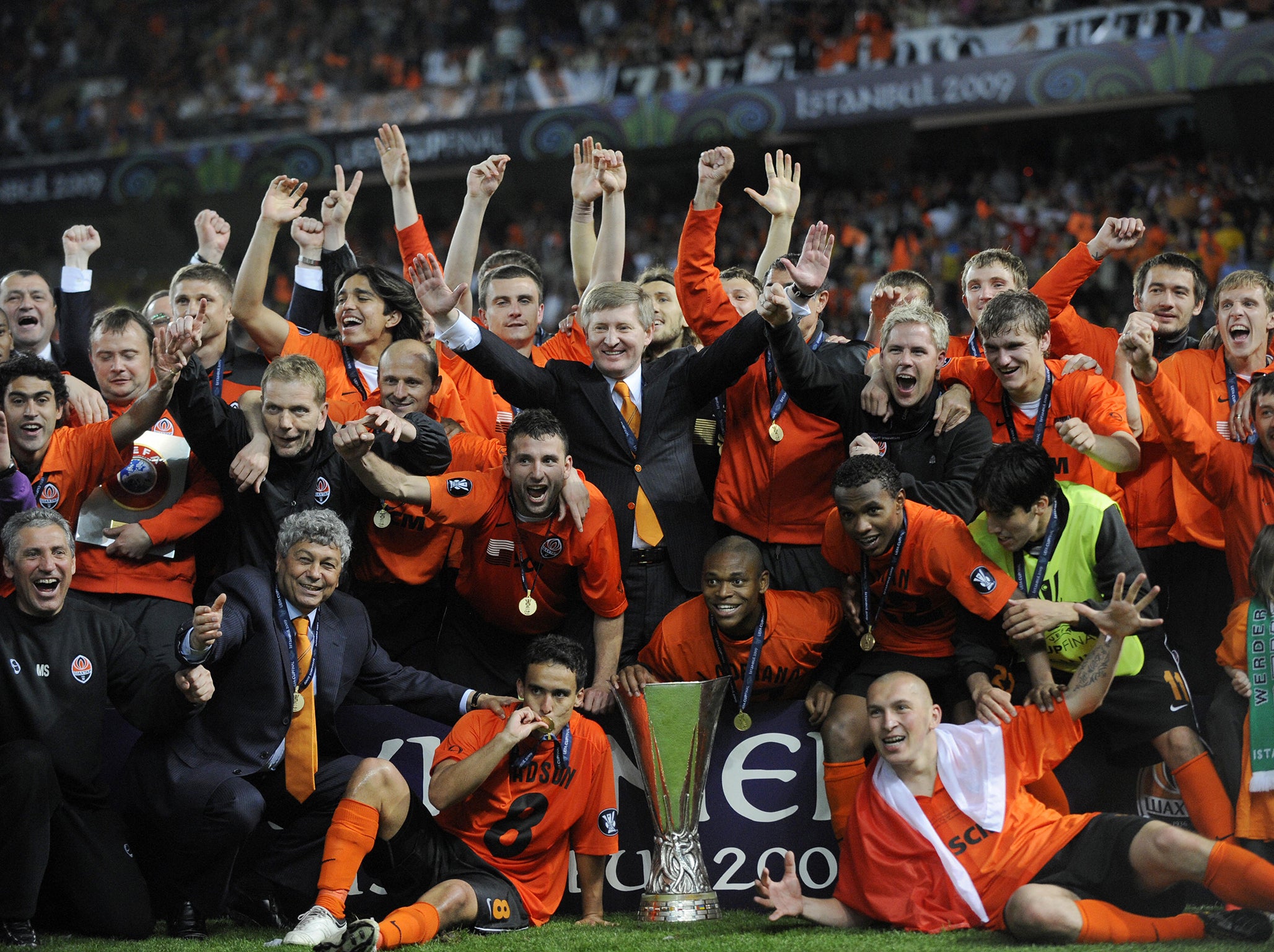Meet the Brit who helped turn Shakhtar Donetsk into a Champions League regular and now has set his sights on AFC Wimbledon
Joe Palmer speaks to Richard Edwards about escaping a war zone for Wimbledon

Such was the financial might of Shakhtar Donetsk at the club’s height that their appearance in the last 16 of this season’s Champions League has barely raised a flicker of surprise.
The fact is, though, that European football’s most high-profile hobos have progressed despite their house and most of their wordly possessions being largely confiscated since the outbreak of a conflict that has resulted in the club playing its ‘home’ matches in Kharkiv, almost 200 miles away from Donetsk.
In short, a lot has happened since England beat Ukraine 1-0, courtesy of a Wayne Rooney goal, at the Donbass Arena back in June 2012.
And one Englishman has found himself closer to the action than most.

Joe Palmer is now back in English football, working as the chief operating officer (COO) of AFC Wimbledon.
Not too long ago, though, Shakhtar’s former director of strategy, commerce and marketing, was piloting, not a move to a former dog-racing track in Merton but a way out of a country about to descend into a conflict that has ravaged Donetsk in a way that would have been unimaginable six summer’s ago.
“As it got nearer and nearer to the elections, we were a bunch of ex-pats who would all meet together to discuss our exit strategy,” he says.
“Fortunately, we were getting some help from the Swiss secret service because one of our friends was from there. They were fantastic, they gave him a backpack with a satellite phone and survival kit.
“We were all very impressed. Then we started wondering what our government was doing to help us. I think the only thing I got from them was an invite to an ambassadors drinks reception in Kiev.
“We all came to the conclusion that whoever got into power, the rebels were not going to accept them and that things were going to kick off.
“I left on the Saturday, the elections were on the Sunday and by Monday the war had broken out and the airport was shutdown. I was pretty close to being stuck there, I guess.”
AFC Wimbledon fans have been in need of a stiff drink on more than one occasion over the past 20 years but their hardship is nothing compared to the pain endured by the citizens of a city whose gleaming Donbass Arena – which hosted the semi-finals of Euro 2012 – is now occupied by rebels.
Once a symbol of hope, it’s now a monument to a conflict that has torn the heart of Ukraine.
“I was in the country for four and a half years until the war broke out there,” says Palmer. “We had fantastic success, we achieved everything we wanted to achieve through the plan we created and Shakhtar were becoming a real powerhouse in European football.
“There are a lot of things that I do miss about it. It’s really sad to see what has happened there. For a homeless club to be in the knockout stages is a great achievement, it just shows what can be achieved with the structure they had there and the legacy of what happened at the time when they were creating academies and developing talent.

“Even now, when life is a lot more difficult they’re pulling on those years of hard work and they’re still able to compete at a high level, even though the budgets are far less than what they once were.”
When Shakhtar won the 2009 UEFA Cup final – beating Werder Bremen 2-1 in the final in Istanbul – they boasted the talents of Willian and Fernandinho, just two of the phalanx of Brazilians who transformed the club’s fortunes.
The connection with Brazil has endured, with the likes of Fred, Taison and Bernard all part of a squad that will hope to spring a surprise against Roma, but the link between the team and the city itself is in danger of being lost completely.
“The situation is a difficult one to describe politically,” says Palmer.

“As far as I understand, Donetsk now describes itself as its own republic – but one that isn’t recognised by anyone other than Russia. The stadium has been taken over by the rebels, so it’s no longer controlled by the club.
“As a region of the world, it has been synonymous with political instability but when I came there I was very impressed with how westernised it was, how people wanted to move forward and how people wanted to professionalise what was happening in Ukranian football.
“Businesses were popping up everywhere, having the European Championship in 2012 had a huge impact too. There was aa huge amount of optimism in Ukraine at the time, everyone was talking about football and thinking about the future. It was so sad to see it cut down so quickly. With what has gone on, I think the region has been knocked back at least 20 years.”
Shakhtar will hope to roll back the years against the Italian side in Kharkiv. For those who remain in Donetsk, a win would represent a scant, but welcome, consolation.
Join our commenting forum
Join thought-provoking conversations, follow other Independent readers and see their replies
Comments
Bookmark popover
Removed from bookmarks